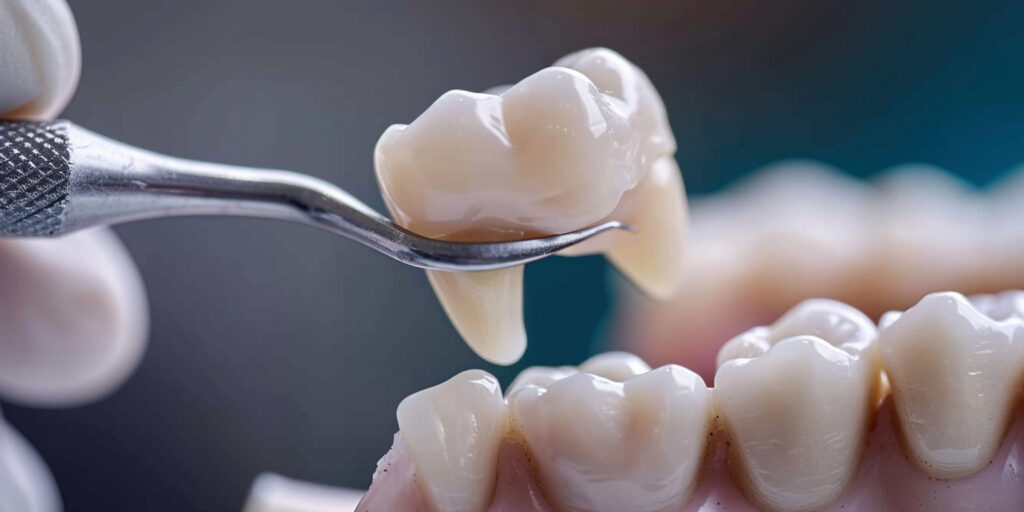Your wisdom teeth, or your “third molars,” are the last set of your 32 permanent teeth to erupt in your jaw. They are four in number if you have them complete and are located in each of the four corners of your lower and upper jaws. Typically, they show up between the ages of 17 and 25 years—the age of wisdom and hence their name—and could be problematic because of their “late” appearance.
Oftentimes, they don’t grow improperly and could become impacted or oddly angled, thus causing issues such as gum disease, pains in the jaw, cysts, infections, and damage to nearby teeth.
Experts consider wisdom teeth to be unnecessary as we don’t use them to grab, cut, or chew food, and recommend removing and not replacing them when they begin to cause issues in the mouth.
If you are considering having one or more of your wisdom teeth removed, you might be wondering if your dental insurance will take care of the cost. In this article, we will answer the commonly asked question, “Does dental insurance cover wisdom teeth removal?” and also explore the extent of coverage you may get for the procedure.
Also read: How to Get Dental Implants Covered by Medical Insurance
The Process for Removing a Wisdom Tooth
If you are considering having your wisdom tooth removed, you should expect to have the procedure done in a five-stage process:
- Initial consultation and examination by an Oral Surgeon
This is the planning stage for the procedure. In this stage, your oral surgeon will do a complete review of your oral health, take and thoroughly examine X-rays of your jaw, and discuss the procedure with you and the risks you will be exposed to. Such details as the choice of anesthesia for the procedure are determined in this stage.
- Preparation prior to having the wisdom tooth removed
At this stage, your oral surgeon will advise you on particular foods or drinks you should avoid taking during a specified period before you have the procedure done. Usually, the type of anesthesia to be used for the procedure will dictate the foods or drinks you should stay away from before having your wisdom tooth removed.
- Anesthesia during wisdom tooth removal
Just before you have the procedure, your oral surgeon will apply anesthesia locally, under sedation, or generally; it all depends on how complex your oral surgeon expects the wisdom tooth removal to be.
- Wisdom tooth extraction
Here, the oral surgeon performs the actual extraction of the problematic wisdom tooth. It’s a straightforward procedure most of the time, but it can easily get as complicated as your oral surgeon having to make an incision in your gum to expose and access the tooth. Sometimes, it might be easier for your oral surgeon to cut up and remove the problematic tooth in sections.
After removing the wisdom tooth, your oral surgeon will clean the extraction site, remove debris, and suture it to aid healing and recovery.
- Taking care after wisdom tooth removal
Your surgeon will give you specific instructions on how to take care of the extraction site. It is important that you follow the Surgeon’s instructions in this regard to reduce incidences of pain, swelling, and possible infection of the extraction site. Also, your oral surgeon will advise you on the proper oral hygiene regime during and after your recovery period.
Does Dental Insurance Cover Wisdom Teeth Removal?
How does dental insurance cover wisdom teeth removal? The answer to this question lies in the type of dental insurance plan that you are subscribed to and the details of coverage for dental care that it offers. For instance, the typical basic dental insurance plan will only cover you for preventive oral care and exclude oral surgeries. On the other hand, a more comprehensive plan will include both.

Specifically, if you are subscribed to a Dental Preferred Provider Organization-type insurance, you can expect to have access to preventive care only as major procedures like oral surgeries are not covered. Do note that you might be able to arrange to have oral surgery under your Dental Preferred Provider Organization plan by making a discounted payment to your insurer if one of the dental practices in your network of clinics and surgeons agrees to do it.
In contrast, dental health maintenance organization-type insurance will give you access to preventive oral care and oral surgeries. Do note that specific details of benefits, such as whether oral surgeries are partially or fully paid for, will depend on factors like the provider and your location.
One factor you will have to consider as you make plans to have a surgical removal of your wisdom tooth is whether or not the procedure is a cosmetic one or a medical necessity. You have a higher chance of getting coverage if you can make a case for the medical necessity of the proposed removal of your wisdom tooth.
Also, there are coverage levels, benefits limits, and waiting periods you should be mindful of.
Generally, you will not have coverage for your wisdom tooth removal if you are maxed out on your plan’s benefits until they reset in the next plan year, although you will still be able to access it via an in-network discount payment.
In like manner, there might be a waiting period before you can access benefits, especially if you are newly subscribed to the plan.
It’s best practice to review the details of your plan with your provider organization as well as your dentist so you can be well-positioned to make an informed decision.
Also read: Does Blue Cross Medical Insurance Cover Dental Implants?
Cost Considerations for Wisdom Tooth Removal
Does dental insurance cover wisdom teeth removal, and if so, what is the coverage limit?
Having a good understanding of what portion of your wisdom tooth removal will be covered by your dental insurance plan is key to successfully planning for the procedure.

A simple extraction of your wisdom tooth will cost between US$80 to US$200 per tooth. The more complex cases, such as the removal of impacted wisdom teeth, can cost between US$250 to $650 per tooth.
Overall, the total cost for extracting all four wisdom teeth under general anesthesia will be between US$1,600 and US$2,500.
There are other fees you might need to pay prior to having the procedure that is not included in the cost of the procedure itself. One of them is the initial consultation fee, which will include the cost of assessing the removal of your wisdom tooth and creating a treatment plan. There will be other costs for follow-up visits to your oral surgeon, prescription drugs, and treatment of possible complications that might arise after the procedure.
Since dental insurance plan coverage details vary from one service provider to the next, always meet with your provider to ascertain the specific benefits of your plan. This will help you avoid unplanned out-of-pocket expenses for dental care.
Also read: Cost of Dental Cleaning Without Insurance
Conclusion
The decision to remove one or more of your wisdom teeth is not one to be trifled with. Take that decision only after consulting with your dentist, oral surgeon, and insurance provider to find out if your dental insurance covers wisdom teeth removal. Consider, together with them, the pros and cons of having the procedure done and get every guidance necessary to inform your decision.
Importantly, consider the financial implications. What portion will you be able to finance through your dental insurance plan? What portion will you finance out-of-pocket?
We strongly encourage you to schedule a consultation with your dentists to discuss your specific situation and explore all available options. They can guide you through the insurance process, recommend financing solutions, and create a personalized treatment plan to restore your oral health and confidence.








